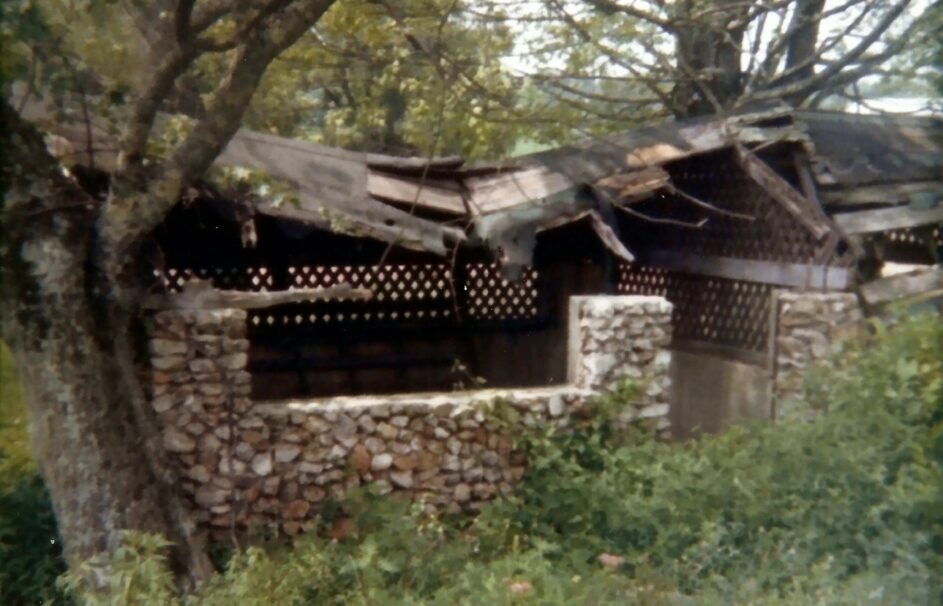Ask any person who lives in East Tennessee what is so special about this area and they will tell you it is the mountains, lakes and parks that are available for their enjoyment. The Concord/Farragut community is no exception, but that wasn’t always the case.
During earlier times, area residents gathered at local springs for picnics, reunions and recreation. Three of such places are prominent in old, historical pictures of the area: Turkey Creek spillway behind the Hackney Mill on Concord Road, Moser Spring on Concord Road and Vance Spring.

Carl A. Cowan
Development along Concord Road removed the old Hackney Mill several years ago. Property that encompasses the spillway was donated to the town of Farragut and plans are underway for a small picnic area sometime in the future.
Moser Spring was the property of James Greeley and Josie Moser whose daughter, Vena Mae Moser married Cullen Vance Biddle Jr. The spring was in the vicinity of where the TNBank and Brooklawn Properties are now at the western most corner of Concord Road and Kingston Pike. This is the property that is currently under development for Farragut Town Center at Biddle Farms.
Vance Spring was located on the property of James Kennedy Vance. That property is now under Fort Loudon Lake as a part of the inundation of the lake on Concord in 1942.
As the area was enjoying an increase in population and new development, Knox County authorized an agreement with the Tennessee Valley Authority to create Concord Park for whites only in 1944. This included Concord Pool on Northshore Drive. At that time, the black community could only use Chilhowee Park one day a year to celebrate Emancipation Day. So, by 1945, Knox County had realized the need for an additional park for the African-American community and in 1946, the new park was named for Carl Cowan, a local black attorney and activist.

Carl Cowan Park. (photo courtesy of Renee Willingham Hamilton)
Carl A. Cowan (1901-1985) was born in Knoxville and attended Knoxville College where he was very active in social and civic organizations as well as playing on the Knoxville College football team. An astute student, Cowan soon became a teacher and coach at Knoxville College from 1926-27 and went on to receive his law degree from Howard University College of Law in Washington, D.C. Cowan practiced law in Knox County from 1934 to 1980 and was appointed the first African American assistant district attorney for Knox County in 1953. In his later years, he was active as a civil rights attorney and, as a close friend of U.S. Supreme Court Justice Thurgood Marshall, worked to win the Supreme Court decision against racial segregation of public schools.
Today, Concord Park is still open and available for all who want to enjoy it; however, the Concord Pool has been dismantled and replaced with a dog park. Fortunately, the beautiful Carl Cowan Park, with 30 acres along Fort Loudon Lake at 10058 Northshore Drive, is still being enjoyed by everyone who wishes to visit. Amenities of the park include a basketball court, fishing areas, children’s playground and splash pad, pavilions, and a walking/nature trail that connects with Admiral Farragut Park.
And perhaps a little-known fact is that Carl Cowan Park is also a stop on the Appalachian Quilt Trail. There you will find a lawyer’s puzzle quilt block placed in honor of Carl A. Cowan. The Appalachian Quilt Trail is a backroads adventure that began in Ohio in 2001 for the purpose of celebrating Americana folk art and tourism in local businesses. As you explore the trail all along the Great Smoky Mountains and throughout Tennessee’s beautiful valley, you will see these beautiful tile quilt squares on century-old barns. Be sure and look for the lawyer’s puzzle quilt block on your next visit to Carl Cowan Park!
Mona Isbell Smith is a retired computer systems analyst who enjoys freelancing.

